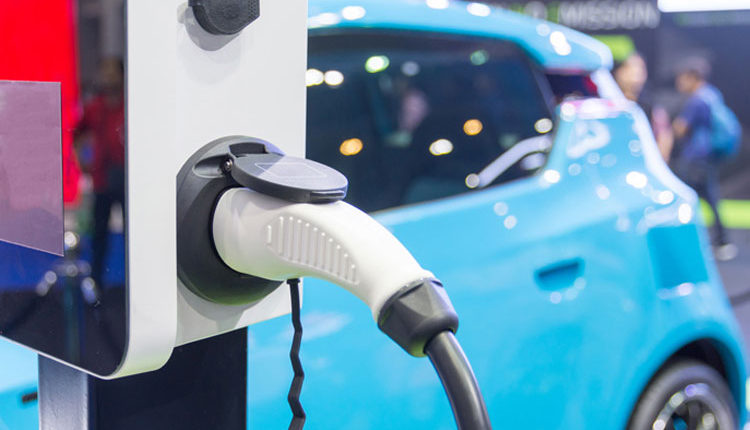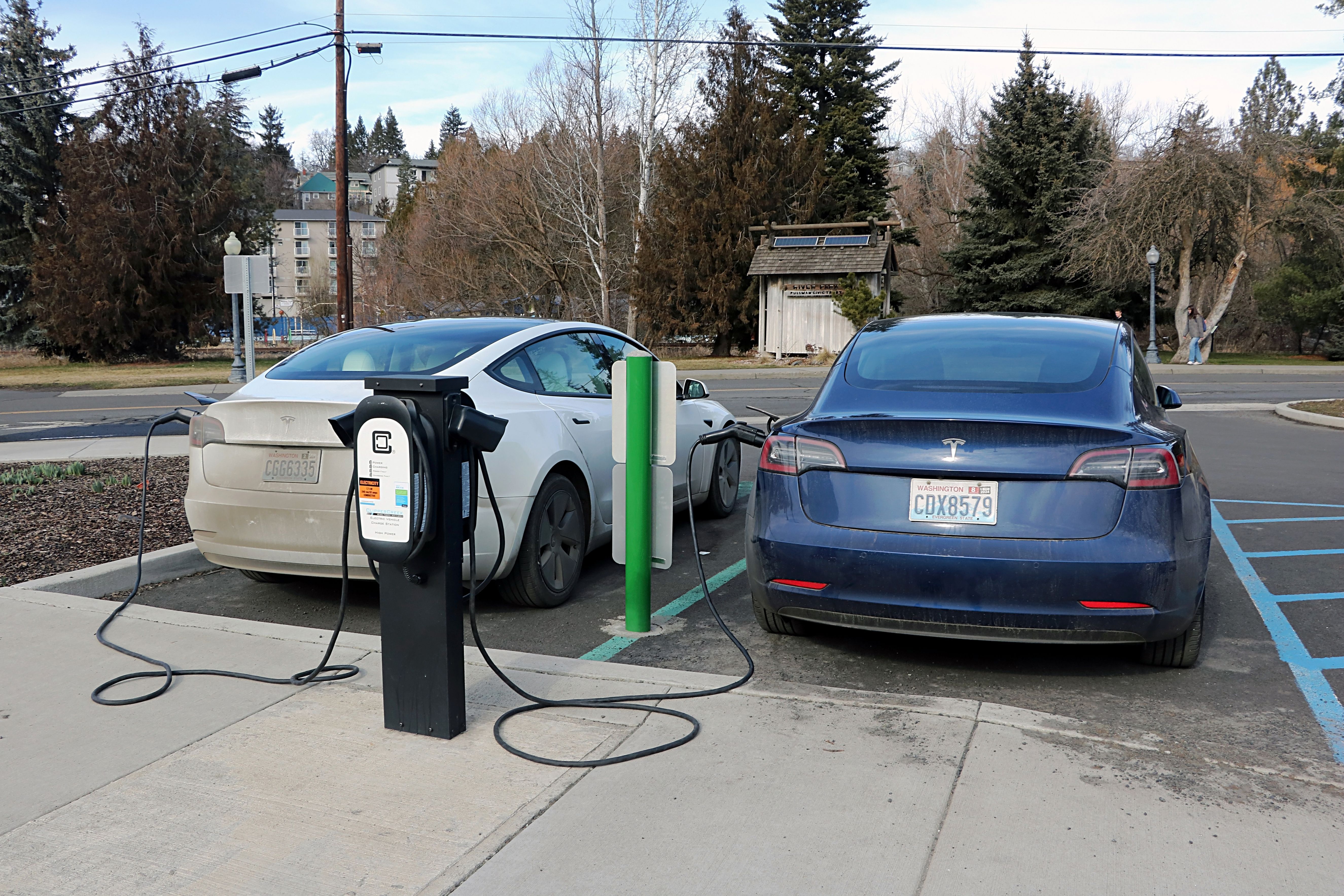How to Make Smarter Decisions in EV Investments by Buying EV Charging news
How to Make Smarter Decisions in EV Investments by Buying EV Charging news
Blog Article
New Developments in EV Charging: How the Market Is Progressing to Satisfy Need
As the electrical vehicle (EV) market proceeds to broaden, the charging facilities is undertaking considerable transformations to attend to the rising demand. The ramifications of these advancements increase vital questions regarding the future of EV billing and its function in the more comprehensive energy environment.
Growth of Charging Framework
The quick expansion of electric automobile (EV) billing infrastructure is an important part in facilitating the extensive adoption of electrical flexibility. As governments, private business, and consumers progressively recognize the relevance of lowering carbon discharges, investments in charging networks have surged. This facilities development is necessary to minimize variety stress and anxiety, making certain that EV customers have hassle-free accessibility to charging stations.
Considerable improvements accountable station innovation and implementation methods have emerged. Urban areas are seeing a proliferation of public charging terminals, while country areas are slowly being integrated into the charging network. Moreover, partnerships in between auto suppliers and billing service providers are becoming much more common, helping with the establishment of comprehensive networks that boost individual experience and access.
Additionally, the assimilation of sustainable energy resources into billing terminals is gaining energy, promoting sustainability in the EV ecosystem. This change not only sustains environmental objectives however also straightens with the rising need for eco-friendly power services amongst consumers.
Ultra-Fast Charging Technologies
Ultra-fast billing innovations stand for a considerable jump ahead in the EV billing landscape, enabling electrical vehicles to charge in a portion of the time contrasted to standard billing techniques. These innovations normally deliver power levels going beyond 150 kW, with some systems reaching up to 350 kW or more, drastically minimizing billing times to as little as 15-30 mins for a significant cost.
Trick enabling modern technologies consist of developments in battery chemistry, power electronic devices, and thermal monitoring systems. For instance, high-capacity batteries with enhanced thermal security permit for faster charging without overheating. Additionally, developments in charging facilities, such as liquid-cooled wires and modular charging stations, help with effective power transfer, boosting the overall individual experience
Significant auto manufacturers and technology firms are actively buying ultra-fast charging networks, acknowledging the important duty they play in conquering range stress and anxiety and speeding up the adoption of electric vehicles. As these technologies end up being much more commonly offered, the EV market is anticipated to witness considerable development, making electric wheelchair a much more appealing option for consumers. Overall, ultra-fast charging modern technologies are crucial fit the future of sustainable transportation, leading the way for a much more considerable and reliable charging community.
Smart Grid Integration

With need action methods, wise grid systems can change charging routines based on grid conditions and electrical power prices. Throughout durations of high demand, charging can be delayed to off-peak hours, resulting in reduced prices for customers and decreased strain on the grid. Additionally, vehicle-to-grid (V2G) technologies make it possible for EVs to release power back into the grid, enhancing try this web-site and providing secondary solutions grid stability.
Integration with renewable resource resources better improves the sustainability of EV charging. By straightening billing activities with durations of high solar or wind generation, wise grids promote a greener billing facilities. Ultimately, clever grid combination not just sustains the growing need for EVs however also adds to a much more resilient and lasting power future, positioning the sector for long-lasting success.
Battery Advancements
Amidst the quick development of electric lorries (EVs), battery advancements stand at the leading edge, driving improvements in sustainability, efficiency, and efficiency. As the demand for EVs rises, researchers and suppliers are concentrating on improving battery modern technologies to deal with obstacles such as range stress and anxiety and billing times.
Lithium-ion batteries continue to be the most widely used innovation, yet brand-new products and chemistries are arising to enhance power thickness and long life. Solid-state batteries, for example, assure better power storage space ability and enhanced safety by replacing fluid electrolytes with strong ones. This change can considerably lower the threat of fire and raise the life-span of batteries.
Furthermore, advancements in battery recycling procedures are crucial for sustainability. Companies are creating approaches to recoup beneficial products like lithium, cobalt, and nickel from utilized batteries, promoting a round economic climate and reducing environmental influence.

Worldwide Charging Criteria

Efforts are underway to establish worldwide billing criteria that promote compatibility amongst various EV models and charging stations. Organizations such as the International Electrotechnical Compensation (IEC) and the Culture of Automotive Engineers (SAE) are functioning collaboratively with auto manufacturers and energy companies to develop click now thorough standards. EV Charging news. These criteria purpose to streamline the charging procedure, lower the demand for numerous adapters, and boost customer experience
Moreover, standardization can significantly bolster the expansion of the charging network, as it urges financial investment by making framework growth a lot more efficient and predictable. As the EV market grows, a unified strategy to billing criteria will certainly be crucial for making sure that consumers can charge their lorries comfortably and dependably, thus supporting the more comprehensive change to lasting transportation.
Conclusion
The electrical automobile charging industry is undertaking considerable change to address the rising need for sustainable transport. Innovations accountable infrastructure, ultra-fast modern technologies, smart grid combination, and ingenious battery solutions are crucial in improving user experience and functional effectiveness. Furthermore, the search of worldwide billing requirements is crucial for making certain interoperability across various regions and systems. Jointly, these developments place the industry to support a more comprehensive adoption of electrical vehicles, eventually adding to a much more lasting future.
Urban locations are seeing a proliferation of public charging stations, while country areas are progressively being integrated into the charging network. Additionally, advancements in billing framework, such as liquid-cooled cables and modular charging terminals, assist in effective power transfer, enhancing the total user experience.
Overall, ultra-fast charging innovations are crucial in forming the future of lasting transport, leading additional hints the means for a more effective and substantial billing environment. - EV Charging news
By straightening billing tasks with durations of high solar or wind generation, wise grids promote a greener charging infrastructure.Efforts are underway to establish international billing criteria that promote compatibility amongst different EV designs and charging stations.
Report this page